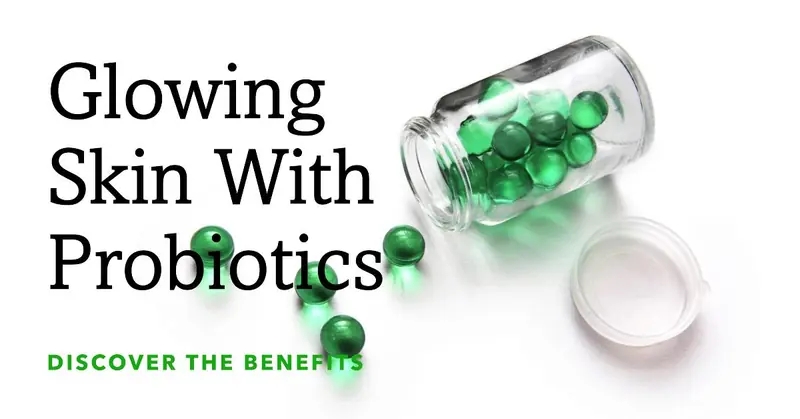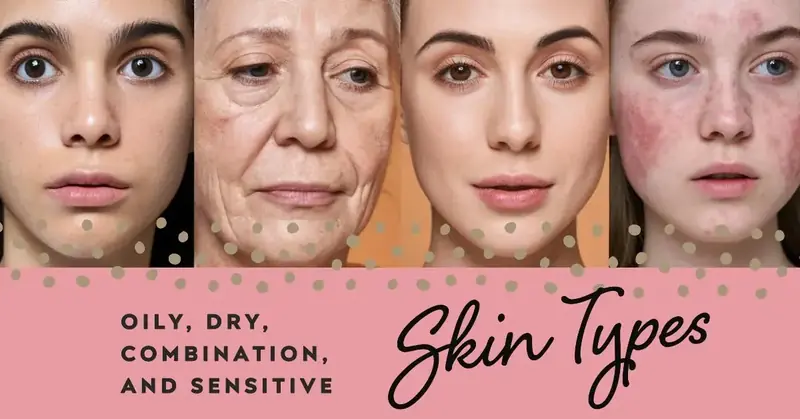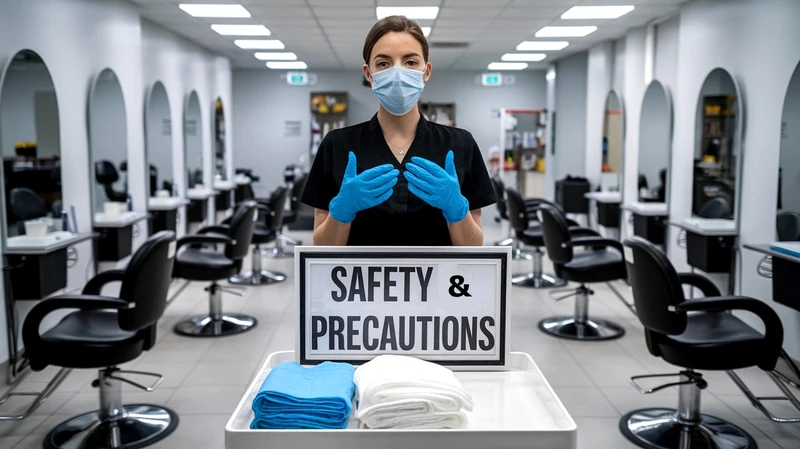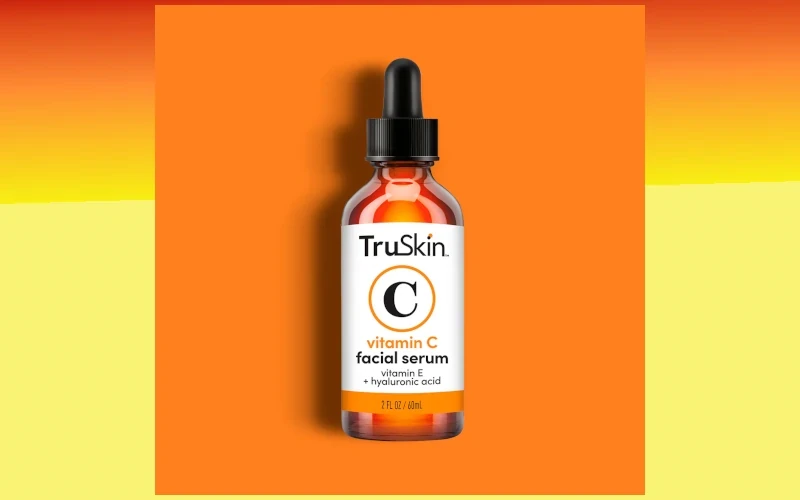Probiotics for Skin Health: A Radiant Revolution
Harness the power of beneficial bacteria for a glowing complexion.

The realm of skincare is constantly evolving, and one of the most exciting advancements in recent years has been the integration of probiotics into beauty routines. Traditionally associated with gut health, probiotics are now gaining recognition for their potential to revolutionize skin health.
These live microorganisms, often referred to as “good” bacteria, offer a myriad of benefits for the skin, from strengthening the skin barrier to reducing inflammation and promoting a balanced complexion.
In this comprehensive guide, we will delve into the science behind probiotics for skin, explore their various benefits, and provide practical tips on how to incorporate them into your skincare routine.
Whether you’re struggling with acne or eczema, or simply seeking to enhance your skin’s natural radiance, understanding the power of probiotics can unlock a new level of skin health and beauty.
- Understanding Probiotics and the Skin Microbiome
- Benefits of Probiotics for Skin Health
- Research and Statistics on Probiotics for Skin
- How to Incorporate Probiotics into Your Skincare Routine
- Choosing the Right Probiotic Products
- Probiotic Skincare Routine for Different Skin Types
- Safety and Precautions
- Conclusion
- Frequently Asked Questions (FAQs) About Probiotics for Skin Health
Understanding Probiotics and the Skin Microbiome
The delicate balance of microorganisms on your skin is what matters the most. The skin is home to a vast and diverse community of microorganisms, collectively known as the skin microbiome. This ecosystem plays a crucial role in maintaining skin health by protecting against pathogens, regulating inflammation, and supporting the skin barrier function.
Probiotics are live microorganisms that, when consumed in adequate amounts, confer a health benefit on the host. In the context of skincare, probiotics are typically applied topically or incorporated into skincare products to support the skin’s microbiome and promote a balanced and healthy environment.
Benefits of Probiotics for Skin Health

It is a multifaceted approach to a radiant complexion. Probiotics offer a wide array of benefits for the skin, addressing various concerns and promoting overall skin health:
- Strengthening the Skin Barrier: The skin barrier acts as a protective shield, preventing moisture loss and defending against external aggressors like pollutants and bacteria. Probiotics help reinforce this barrier by promoting the production of ceramides, essential lipids that maintain skin integrity.
- Reducing Inflammation: Inflammation is a common underlying factor in many skin conditions, including acne, eczema, and rosacea. Probiotics possess anti-inflammatory properties that can help soothe and calm irritated skin, reducing redness and discomfort.
- Balancing the Skin Microbiome: An imbalance in the skin microbiome, known as dysbiosis, can lead to various skin problems. Probiotics help restore balance by promoting the growth of beneficial bacteria and suppressing the overgrowth of harmful bacteria.
- Fighting Acne: Certain strains of probiotics have been shown to reduce acne breakouts by inhibiting the growth of acne-causing bacteria and regulating sebum production.
- Soothing Eczema and Psoriasis: Probiotics can help manage the symptoms of eczema and psoriasis by reducing inflammation and improving skin barrier function.
- Slowing Down Aging: Probiotics can help combat the signs of aging by promoting collagen production, improving skin elasticity, and reducing the appearance of fine lines and wrinkles.
- Protecting Against Environmental Damage: Probiotics can help protect the skin from environmental stressors like pollution and UV radiation, which can accelerate aging and damage the skin barrier.
Research and Statistics on Probiotics for Skin
Numerous studies have investigated the potential benefits of probiotics for skin health. Here are some key findings:
- A 2014 study published in the Journal of Applied Microbiology found that topical application of Lactobacillus plantarum, a strain of probiotic bacteria, significantly reduced skin sensitivity and improved skin barrier function in individuals with sensitive skin.
- A 2015 study published in the International Journal of Women’s Dermatology demonstrated that oral supplementation with Lactobacillus paracasei, another probiotic strain, improved skin hydration and elasticity in women with dry skin.
- A 2017 systematic review published in the Journal of the American Academy of Dermatology concluded that probiotics show promise in treating acne, atopic dermatitis (eczema), and rosacea.
How to Incorporate Probiotics into Your Skincare Routine
Let’s look at some Practical Tips for Harnessing the Power of Probiotics. There are several ways to introduce probiotics into your skincare regimen:
- Topical Probiotics: Look for skincare products containing live probiotic cultures or probiotic lysates (extracts of probiotic bacteria). These products can include cleansers, moisturizers, serums, and masks.
- Oral Probiotics: While research is ongoing, some studies suggest that oral probiotic supplements may also benefit skin health by modulating the immune system and reducing inflammation throughout the body.
- Probiotic-Rich Foods: Consuming fermented foods like yogurt, kefir, sauerkraut, and kimchi can introduce beneficial bacteria into your gut, which may indirectly support skin health.
Choosing the Right Probiotic Products
What are the key considerations for selecting effective products? When selecting probiotic skincare products, consider the following factors:
- Strain Specificity: Different strains of probiotics offer different benefits. Look for products that clearly state the specific strains used and their intended effects on the skin.
- Concentration: The concentration of probiotics in a product can vary. Higher concentrations may be more effective, but it’s essential to choose products that are formulated and tested for safety and efficacy.
- Delivery System: Probiotics can be delivered in various forms, including live cultures, lysates, or fermented ingredients. Choose products with delivery systems that ensure the stability and viability of the probiotics.
- Other Ingredients: Look for products that combine probiotics with other beneficial ingredients like hyaluronic acid, ceramides, and antioxidants to enhance their effectiveness.
Probiotic Skincare Routine for Different Skin Types
Tailoring Your Routine for Optimal Results. The ideal probiotic skincare routine may vary depending on your skin type and specific concerns. Here are some general guidelines:

- Oily Skin: Look for lightweight, oil-free products containing probiotics and ingredients like niacinamide or salicylic acid to help control oil production and prevent breakouts.
- Dry Skin: Choose hydrating products with probiotics and ingredients like hyaluronic acid or ceramides to lock in moisture and soothe dryness.
- Sensitive Skin: Opt for fragrance-free, hypoallergenic products containing probiotics and calming ingredients like chamomile or aloe vera.
- Aging Skin: Consider products with probiotics and anti-aging ingredients like retinol or peptides to promote collagen production and reduce the appearance of wrinkles.
- Acne-Prone Skin: Choose products containing probiotics and ingredients like salicylic acid or benzoyl peroxide to help combat acne-causing bacteria and reduce inflammation.
Safety and Precautions

How to ensure a safe and effective experience? Probiotic skincare products are generally safe for most people. However, it’s always recommended to do a patch test before applying any new product to your entire face, especially if you have sensitive skin.
If you experience any adverse reactions like redness, itching, or swelling, discontinue use and consult a dermatologist.
Conclusion
Probiotics are emerging as a powerful tool for healthy, radiant skin. By supporting the skin’s microbiome, reducing inflammation, and promoting a balanced complexion, probiotics offer a natural and effective way to address various skin concerns and enhance your skin’s natural beauty.
Incorporating probiotics into your skincare routine, whether through topical products, oral supplements, or probiotic-rich foods, can be a game-changer for your skin health journey. Remember, consistency is key. Making probiotics a regular part of your skincare regimen and adopting healthy lifestyle habits can unlock your skin’s full potential and achieve a radiant, glowing complexion that reflects your inner well-being.
Remember:
- The skin microbiome plays a crucial role in skin health.
- Probiotics support the skin’s microbiome and offer various benefits, including strengthening the skin barrier, reducing inflammation, and fighting acne.
- You can incorporate probiotics into your skincare routine through topical products, oral supplements, and probiotic-rich foods.
- Choose probiotic products carefully, considering strain specificity, concentration, delivery system, and other ingredients.
- Tailor your probiotic skincare routine to your specific skin type and concerns.
- Probiotic skincare products are generally safe, but it’s always recommended to do a patch test before applying them to your entire face.
- Consistency is key to reaping the benefits of probiotics for your skin.
By embracing the power of probiotics and making informed choices about your skincare and lifestyle, you can achieve a healthy, radiant complexion that glows from within.
Source:
- The International Scientific Association for Probiotics and Prebiotics consensus statement on the scope and appropriate use of the term probiotic | Nature Reviews Gastroenterology & Hepatology
- IJMS | Free Full-Text | Lysates of a Probiotic, Lactobacillus rhamnosus, Can Improve Skin Barrier Function in a Reconstructed Human Epidermis Model (mdpi.com)
- A REVIEW ON ANTI-AGING PROPERTIES OF PROBIOTICS | International Journal of Applied Pharmaceutics (innovareacademics.in)
- Role of Probiotics in Skin Photoaging and Related Mechanisms | CCID (dovepress.com)
- Commentary on “The Effects of Probiotics on Immune Regulation, Acne and Photoaging” | Auctores (auctoresonline.org)
Frequently Asked Questions (FAQs) About Probiotics for Skin Health
By incorporating probiotics into your skincare routine and making informed choices about the products you use, you can harness the power of these beneficial bacteria to achieve a healthier, more radiant complexion. Remember, a balanced skin microbiome is key to optimal skin health, and probiotics can play a vital role in achieving that balance.
Trust in your purchase:
Every product featured on our site has been carefully researched and selected based on quality, customer ratings, and positive reviews to ensure you receive excellent value for your money.
Please note:
This post contains affiliate links. If you make a purchase through these links, we may earn a small commission at no additional cost to you. This helps support our site and allows us to continue bringing you valuable content. Thank you!
Thank you for your precious time spent with AestheticThrive.






